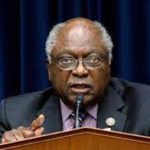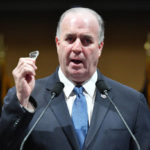Check out the website: https://lenspoliticalnotes.com Look at the recent Political Notes and Len’s Letters on the website:
December 14th , 2022 Len’s Letter #58 The House Leadership — working in the system as it is
2022 General Election
When we were taught American history in school, we were less likely to examine the contradictions. We were less likely to study President John Adams, a leading revolutionary, presiding over the passage of the Alien and Sedition Acts that allowed arbitrary deportation of non-citizens (only those who were at least 14 years old), detention of non-citizens at a time of war, and criminal prosecution of citizens and non-citizens alike for false and malicious statements about the federal government. We were less likely to contemplate the uncertainties of President Thomas Jefferson had (a strict constructionist about the Constitutional authority of the President) about the legitimacy of the Louisiana Purchase. Jefferson had to be persuaded that a constitutional amendment authorizing the purchase was not required to make it legitimate.
Usually, I write about politicians as candidates, urging readers to give candidates money so they can win and we can achieve the Democratic party’s goals. Not today. I am writing about Democratic Leaders in the House of Representatives – Democrats working within the system. They will not be in the majority and are unlikely to have much say in what happens in the House. They are already twice elected – by their constituents and by the Democratic Membership in the House.
The Democratic leadership are the new people many have been looking forward to. We benefit from knowing who they are. You can support them by donating money. Though neither we nor they know who Hakeem Jeffries will select to head the Democratic Congressional Campaign Committee (DCCC) they would encourage you to give to give them money. The DCCC has already identified 19 Republican held seats to flip. https://lenspoliticalnotes.com/political-note-423-gabe-vasquez-nm-02/.

Minority Leader Hakeem Jeffries (NY 08)
The Congressman is 52 years old. His mom was a social worker. His dad was a substance abuse counselor for the State of New York. He grew up in Crown Heights, Brooklyn. Currently, Crown Heights is just under 50% Black, just over 30% white, and just under 15% Hispanic. It is still poor despite decades of gentrifying. The median household income is less than $45,800.
Hakeem Jeffries graduated from Midwood High School and went on to Binghamton University, a state university. When he was growing up, Crown Heights was characterized by poverty and a high crime rate. During the blackout of 1977, when Hakeem Jeffries was 7 years old, more than 75 stores were robbed. In 1992, the year before Hakeem Jeffries graduated from college, Crown Heights had a three-day riot. The son of Guyanese immigrants was struck and killed by a car in the motorcade of Rebbe Menachem Mendel Schneerson, the leader of the Lubavitch Hassidic Jews. A visiting Australian rabbinical student was murdered in the rioting. Although outreach programs ameliorated some of the anger, the riot and the deaths have not been forgotten by either community.
Hakeem Jeffries went on to get a Master’s in Public Policy from Georgetown and a law degree from NYU. After a clerkship, he joined the Paul, Weiss law firm, then became in house counsel for Viacom and CBS. While at Paul, Weiss, he was director of intergovernmental affairs for a NY association of minority contractors and was President of the Black Attorneys for Progress.
“Washington is broken. Congress is dysfunctional. People are suffering. We deserve more.” Hakeem Jeffries running for Congress
After a tumultuous early political career which included two losses in primaries for the State Assembly, redistricting that appeared designed to exclude him from challenging an incumbent, and an opening in 2006 for a successful Assembly run, Hakeem Jeffries finally was on his way. In 2012, he ran for Congress – encouraging the 30 year incumbent to retire and marshalling the establishment to help him defeat a city councilman accused of anti-Semitism and supported by international figures including Zimbabwe’s Robert Mugabe and Libya’s Muammar Gaddafi. Hakeem Jeffries won the primary by a 3-1 margin and found Congress, despite his description of it as dysfunctional, was a perfect place for him.
During his efforts to be elected to the State Assembly, Hakeem Jeffries was described as the Barack Obama of Brooklyn. He declined the comparison – except for having the same August 4 birthday. He might have added: except for having Arab-sounding names, except for having gone to highly rated law schools and serving on law review, except for an interest in state and national rather than city politics. We can now add – except for political success at the country’s very highest level. His election as minority leader, along with a team of a new generation of leaders, could not have been achieved with less tumult or rancor. If Will Rogers could return, the author of the quotation “I am not a member of any organized political party – I am a Democrat” would be shocked at his party’s effective organization. We will all be interested to see what Hakeem Sekou Jeffries does with a party that has been described as in “array.”

Whip Katherine Clark (MA 05)
A resident of Melrose in Northeast Massachusetts – a town smaller than Medford (home of Tufts University and where Michael Bloomberg grew up), smaller than Malden (of which Melrose was a part until the mid-19th century), Katherine Clark took the long way round to get there. She was born in New Haven, Connecticut, went to St. Lawrence University and Cornell Law School in New York, studied at the Kennedy School in Massachusetts, and studied in Japan. She practiced law in Chicago and Colorado; moved to Massachusetts to become the general counsel for the state’s Office of Child Care Services.
Twenty years ago, Katherine Clark was elected to her local school board. In 2004, she ran for the State Senate and lost to the incumbent Republican. In 2006, she co-chaired the Democratic Party’s campaign and fundraising effort to elect Deval Patrick as Governor. In a special election in 2007, she was elected to the State House of Representatives. In 2010, she flipped an open State Senate seat by a 52-48 margin. In the State Senate, she led legislative efforts in areas from education to electronic privacy to street crime. And in 2013, she ran in a special election to replace Ed Markey in Congress. He had been elected to the US Senate. She won her primary with 32% of the vote – getting support from women’s groups and from then attorney general Martha Coakley.
In the House, she got a valuable assignment to the Appropriations committee. Five years later, she defeated Pete Aguilar to become the Democratic caucus Vice Chair. Two years after that, in 2020, she defeated Rhode Island Congressman David Cicilline to become Assistant Speaker of the House. A few days ago, she was elected House Whip with no opposition at all. In a recent interview, she described receiving criticism for letting her hair grow gray. “You will never get the respect you deserve.” “And yet, here I am, the Democratic whip.”
How did she do that? Go from School Board Chair to House Whip in 20 years? And with gray hair? Some in the press see her outstanding trait as remembering and acting on her memory. She remembers birthdays. She remembers who has a sick father. She remembers where someone wants his kid to go to university. She takes a personal interest in her colleagues in the House and in everyone else besides. Could that be it? GWH Bush was famous for his index cards about everyone he met, for his notes on birthdays and the like. Apparently, that characteristic can take a politician a long way.
Clark combines her informal strengths with what she describes herself as being – “driven to helping children and families to succeed.” The Boston Globe, in a recent story about her, described that “driven” quality as the basis for a nickname – “the silent assassin.” The Globe noted her victories and stressed how effective she had been as co-chair of recruitment, bringing in and supporting candidates.
Her successes seems based more on building positive relationships rather than “assassination.” With perfect timing, she was co-chair for 2018 when the Democrats flipped more than 40 Republican seats. Clark had created supporters out of many of them as she supported them. She built relationships with them. In running for whip, she stressed the connections she has made – across ideological lines, across geographic lines. Believe her. Her colleagues do.

Caucus Chair Pete Aguilar (CA 33)
At 42, Pete Agjilar is the youngest of this troika. Hakeem Jeffries is 52. Katherine Clark is 59. Pete Aguilar was born and grew up in Fontana, California – 50 miles due east of Los Angeles, an hour’s drive on Route 10 unless, of course, traffic is heavy.
He lives in Redlands, now – another half hour east on Route 10. He got his first job at the age of 12 – busing tables for his grandfather in the cafeteria of the San Bernadino County Courthouse. That’s one way to enter politics – a good way for someone who calls himself a fourth generation Mexican-American. He went to the University of Redlands and recalls working two jobs while there, while also relying on Pell grants. His dad, who worked in a union job for a utility, would have struggled to pay for college without his son working and without the federal support.
In 2001, Pete Aguilar went to work for Governor Gray Davis, appointed as Deputy Director of the Governor’s Inland Empire office. In 2003, a recall election turned the Governor out of office. Briefly, Pete Aguilar served as Interim Director of the Office. In 2006, the members of the Redlands City Council selected Pete Aguilar to fill a Council vacancy. In 2010 and in 2012, he was selected by Council members to serve as mayor. In 2012, he ran for Congress. Two Republicans led the top non-partisan primary. He ran again in 2014, came in second in the primary and won the run off. His closest race was in 2018 when he led a Republican economist and aikido martial arts expert by .5% of the vote in the primary. Pete Aguilar won the run off by 17 points.
The year after he was first elected to Congress, a married couple with Pakistani ties attacked a Christmas Party for the San Bernardino County Department of Public Health – killing 14, seriously injuring 22 more of the 80 people in attendance. The couple had been radicalized, were committed to the Islamic State, and spent a year preparing for the attack. Ironically, three of those killed were refugees who had come to the US for freedom from Iran, Eritrea, and Vietnam.
Horrific as the attack was, its principal effect on Pete Aguilar’s politics was his focus on obtaining funds for survivors and compensation to the county for the costs of dealing with the attack. His more general legislative concerns included education and job training, health care, and immigration. Regarding immigration, he sought a pathway to citizenship for immigrants brought to the US as children and a way to keep families together. Immigrants may seem like dangerous aliens to Republicans, they seem like family to Pete Aguilar.

Assistant Leader Jim Clyburn (SC 06)
The two leaders with history that began in Maryland – Nancy Pelosi and Steny Hoyer – stepped down from the leadership altogether. Jim Clyburn, the third person in the previous troika, took a diminished role. In doing that, he and others persuaded Rhode Island Congressman David Cicilline to forego a contest for the position of Assistant Leader.
Jim Clyburn will be forever known as the person responsible for Joe Biden becoming President of the United States. Jim Clyburn had already leveraged South Carolina into the line up of four early Presidential Primaries. His endorsement of Joe Biden, whose previous 2020 primary performances were weak, created an overwhelming South Carolina vote for Joe Biden and made him the front runner.
Jim Clyburn had a life before 2020. His dad was a minister. His mom was a beautician. Part of his heritage was a distant relative and former congressman who had opposed the 1895 South Carolina constitution which disenfranchised African Americans. They remained disenfranchised in South Carolina until the 1960s when the Civil Rights laws were passed.
Jim Clyburn went to a private, African American boarding school in Camden, SC for high school and the South Carolina State College (now University) for his BA. From there, he taught English and Social Studies in Charleston. The three-month 1969 Charleston Hospital Strike was a catalyst for Jim Clyburn’s political activism. Governor Robert McNair called out 1,000 state troopers to deal with sixty African American strikers protesting the firing of 12 African American nurses who had attempted to organize a union to deal with their differentiated and lower pay than whites as well as racist treatment that ranged from personal remarks to being banned from the cafeteria. The federal government forced a settlement. Everyone was rehired including the nurses, pay was increased if not equalized, and segregation was eliminated.
Jim Clyburn worked on the campaign of the first African American elected to the Charleston City Council since Reconstruction. He became an employment counselor and then Executive Director of the farm workers commission. He ran for the state assembly unsuccessfully, but was hired by Governor John West as an advisor before West appointed him South Carolina’s Human Affairs Commissioner. The gubernatorial appointments followed the Orangeburg Massacre – police killing three African American South Carolina State students who were protesting against the US invasion of Cambodia.
With the 6th Congressional district redrawn after the 1990 census, to be consistent with a Supreme Court decision, Jim Clyburn was nominated to Congress for the 6th with 55% of the vote – eliminating any need for a run off. He won the general election easily and continued winning. He was elected chair of the Black Caucus in 1999, vice chair of the Democratic caucus in 2003, chair of the caucus in 2006, and became Assistant Leader after the 2010 elections when the Democrats lost the majority. With the majority restored in 2018, he became Majority Whip. With the changing of the guard in 2022, he acquiesced to new leadership, but wanted to keep his hand in. He will make sure that his broader constituency, the Blacks of America, get their due.
The Democratic Caucus, of which Pete Aguilar is chair, has a bunch of Leadership positions.

Vice Chair of the Caucus Ted Lieu (CA 36)
With a median family income of $115,000, Ted Lieu’s slightly revised and renumbered coastal district from Long Beach to Malibu and Beverly Hills is just short of being among the 10 highest income districts in the country. Born in Taiwan, raised in Cleveland, Ted Lieu is comfortable with success and describes his experience as achieving the American dream. He went to Stanford, to Georgetown where he edited the law review while getting his JD, clerked in the Ninth Circuit, and joined the Air Force where he was a prosecutor and advisor to those in command. He has remained a member of the reserves, was elected to the Torrance City Council in 2002, and to the state Assembly in a special election in 2005.
Having been among those who persuaded the NFL to return to Los Angeles and working with the LPGA to rescind penalties against non-English speakers, Ted Lieu ran unsuccessfully for Attorney General in 2010 and successfully for the State Senate in 2011. In 2014, he was elected to replace the retiring Henry Waxman, who had been in Congress for 40 years. Pro-choice, pro civil rights, a critic of Saudi Arabia, skeptical of espionage arrests of Chinese Americans, and an expert on cyber security, he was particularly critical of Trump. In congress, he played recordings of immigrant children separated from their families. On Twitter, he responded to Trump’s ravings.
Caucus Leadership Rep of Members for five terms or fewer

Sara Jacobs (CA 53)
Sara Jacobs was born in Del Mar and raised in San Diego where she still lives. Her grandfather, Irwin Jacobs, was a founder of Quaalcomm. Her uncle Paul Jacobs is a former CEO of Quaalcomm. Her father, Gary, was a philanthropist. She left the West Coast to go to Columbia, stayed in NY to work for UNICEF. She worked on Hillary Clinton’s campaign in 2016 and returned home to create a San Diego non-profit, a coalition to end childhood poverty.
Sara Jacobs came in third in the multi-party primary for Congress in 2018, but was elected in 2020 and reelected in 2022. In 2020, she spent nearly $7 million of her own money on the campaign. She has been arrested in a pro-choice rally and describes climate change as a threat to humanity. She would create a path to citizenship for undocumented immigrants living in the US and would increase funding substantially to create an immigration focused court system to eliminate the backlog while modernizing security at the border. She is an advocate for funding child care and for repealing the Trump era tax cuts for the wealthy.

Freshman Leadership Representative Jasmine Crockett (TX 30)
Forty-one year old Jasmine Crockett was elected to represent the freshman members of the 2022 class. Born in St. Louis, she went to the private Rhodes College in Memphis and to Law School at the University of Houston. She stayed in Texas, taking a job as a public defender in the far northeast corner of the non-panhandle section of the state. Then she set up her own firm in Dallas (2 ½ hours west, (not a long drive in Texas). She represented Black Lives Matter activists and ran successfully for an open state House seat. When Rep Eddie Bernice Johnson retired, she was one of several candidates for the position, but the only one with Johnson’s endorsement. In the State House, in response to Texas Republicans efforts to attack voting rights, Jasmine Crockett led Texas legislators to Washington to lobby for voting rights bills there.

Battleground District Rep. Abigail Spanberger (VA 07). Political Note #438
Abigail Spanberger defeated Matt Cartwright from an even more vulnerable seat in Pennsylvania for this newly created seat at the leadership table. A. winner in 2022 with 52.3% of the vote in a district with a D+2 lean, she has been in Congress since 2018.
Born in New Jersey, her family moved to near Richmond VA when she was 13. She adapted to her surroundings well enough so that she served as a page for Senator Chuck Robb. She got her BA from UVA and an MBA from Purdue in a program in Germany. She served as a postal inspector in the early 2000s and joined the CIA in 2006. She stayed for eight years and left to work as a consultant as a member of the staff of EAB, a consultant to educational institutions. In 2018, she defeated Congressman Dave Brat, a Tea Party Member for this north/south district immediately west of Richmond, a district which prefers moderates to radicals of any sort.
The Steering and Policy Committee is appointed, not elected. Hakeem Jeffries appointed three Co-Chairs:

Dan Kildee (MI 08) Political Note #459
Dan Kildee is the Congressman from Flint. That Flint connection invites a comparison with filmmaker Michael Moore. Moore is a little younger than Kildee. He went to parochial schools and graduated from a high school just outside of Flint. At age 18, Moore was elected to the Davison School Board. Moore’s uncle LaVern was one of the UAW founders. Kildee went to the Flint Public Schools. After graduating from one of the high schools in Flint, he was elected to the Flint School Board. His uncle was a Congressman.
Dan Kildee was in the family business. He was elected a county commissioner and then the country treasurer. In that last role, he created a land bank to revitalize the community. When his uncle retired from Congress, no Democrat challenged Dan Kildee’s candidacy. In Congress, he represented freshmen on the Steering Committee. Serving on the Ways and Means Committee and the Budget Committee, he was a kind of representative of all blighted cities. Recently, he developed a new role. He has been a Congressional commentator on the January 6 insurrection; so severely was he affected he described himself as suffering from post-traumatic stress syndrome.

Barbara Lee (CA 13)
Before AOC. Before the Squad. but after Ron Dellums, for whom she worked, Barbara Lee was the personification of a left-wing Democrat in Congress. Born in Texas, her military family moved to California. The divorced mother of two children before she was 20, she did not marry again. Nevertheless, she went to Mills College, then a small private women’s college, and got a Master’s from University of California, Berkeley.
The politics that made her the example of a left-wing Democrat include
- Being the only Member of Congress to oppose the authorization of the use of military force after 9/11 – warning that the language of the authorization gave the President a “blank check.”
- Other foreign policy positions including opposition to American support for the Saudi-led coalition fighting the Houthi’s in Yemen, opposition to the Congressional resolution condemning the anti-Israel BDS movement, and support for Joe Biden’s withdrawal from Afghanistan.
- Supporting restricting the availability of guns to the public
- Supporting efforts to slow climate change
- Criticizing the National Park Service for failure to act on a plan to honor the Black Panthers.
- Supporting the legalization of cannabis
- Objecting to counting Florida’s electoral college vote in 2000.
- Calling for a 10% reduction in the military budget
- Supporting affordable housing
- Being strongly pro-choice

Debbie Wasserman-Schultz (FL 25)
Born in Queens, Debbie Wasserman grew up on Long Island. She went to the University of Florida, from which she also got an MA. She went to work for State Rep Peter Deutsch and ran for his seat when he ran for Congress. Shortly before that run, she married banker Steve Schultz to whom she is still married and with whom she had three children. After eight years in the House, she was elected to the State Senate. In 2004, she ran for Congress, replacing Deutsch who retired. In 2011, she was appointed the head of the DNC, from which she resigned after DNC emails were hacked by the Russians.
Debbie Wasserman-Schultz represents Broward County, north of Miami and has been part of the Congressional leadership beginning with her first term in office. She was an early supporter of the Consumer Financial Protection Bureau. Pro-Israel, she also supported GW Bush’s financial support for Palestinians. Whether she was slow to accept the movement toward legalization of marijuana or steadfast in seeking to achieve accountability for those who supported terrorists, she has often been controversial.
The Chair of the DCCC has not yet been selected by Minority Leader Hakeem Jeffries. He has interviewed the two Representatives who had expressed interest in the position until the Caucus voted to make the position appointed instead of elected.
To get a picture of the Leadership’s political orientation, note which of the three caucuses each has belonged to – the Progressive Caucus, the middling New Democratic Coalition, and/or the moderate to conservative Blue Dog Coalition.
- Six belong to the Progressive Caucus:
- Minority Leader Hakeem Jeffries Kim Clyburn, Ted Lieu, and
- Minority Whip Katherine Clark
- Assistant Leader Jim Clyburn
- Steering Committee Co-Chair Dan Kildee
- Steering Committee Co-Chair Barbara Lee
- Caucus Vice Chair Ted Lieu
- One belongs to both the Progress Caucus and the more moderate New Democratic Coalition:
- Caucus Rep of those serving 5 terms or fewer Sara Jacobs
- Two belong to the New Democratic Coalition:
- Caucus Chair Pete Aguilar
- Steering Committee Co-Chair Debbie Wasserman Schultz
- One belongs to the New Democratic Coalition and Blue Dog Coalition:
- Caucus Rep of those in Battleground states Abigail Spanberger.
- One who has yet to choose a caucus
- Caucus Rep of the incoming freshmen Jasmine Crockett
Here are a couple of additional points. The analysts have made a thing about the Democratic Leadership coming from the coastal states. That’s not wrong. But consider the states:
- California 3 member of the leadership from the largest state (1)
- Florida 1 members of the leadership from the 3rd largest state (3)
- Massachusetts 1 (15)
- Michigan 1 (8)
- New York 1 (4)
- South Carolina 1 (24)
- Texas 1 (2)
- Virginia 1 (11)
These are Members of Congress from (with the exception of Jim Clyburn) big states. Their interests (with the possible further exception of Pete Aguilar) are urban and suburban.
The second point. Look at their ages. Jeffries –52, Clark – 59, Aguilar 42. They may be rivals. In 2018, Clark defeated Aguilar for Caucus Vice Chair. In these roles, they are not natural rivals. It may never work out that way, but Aguilar has time to wait.
We will all get a chance to watch them work – to see how to work in the system as it is.
AN OPPORTUNITY TO PROVIDE FINANCIAL SUPPORT
Special Election January 10, 2023 – Virginia State Senate
City Councilman Aaron Rouse
Take Back the House in 2024
Inc Mary Peltola (AK AL) (R+15)
Businessman Adam Frisch (CO 03) (R+15)
Inc Jared Golden (ME 02) (R+10)
Non-profit Head Jevin Hodge (AZ 01) (R+7)
Law Professor Kirsten Engel (AZ 06) (R+7)
Inc Yadira Caraveo (CO 08) (R+3)
Inc Jahana Hayes (CT 05) (D+3)
Inc Pat Ryan (NY 18) (D+3)
Inc Gabe Vasquez (NM 02) (D+4)
Inc Val Hoyle (OR 04) (D+9)
Inc Seth Magaziner (RI 02) (D+17)
Len’s Political Note #525 Get the House Back in 2024, Part 1
Len’s Political Note #526 Get the House Back in 2024, Part 2